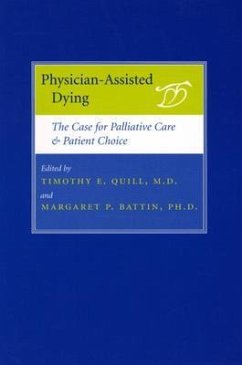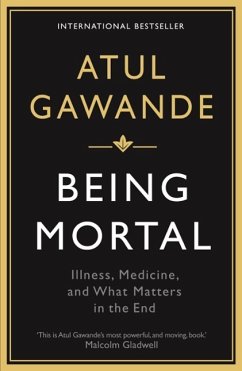
Hidden Suicides and Fatal Overdoses
A Forward Path
Versandkostenfrei!
Erscheint vorauss. 6. Januar 2026
57,99 €
inkl. MwSt.

PAYBACK Punkte
29 °P sammeln!
Critically examines the chronic undercounting and increasing misclassification of suicide in the United States--and why this issue matters. In Hidden Suicides and Fatal Overdoses, Ian Rockett confronts the persistent crisis of suicide misclassification in the United States. Various institutional, cultural, and political forces distort suicide statistics and mask the full scale of self-inflicted injury mortality. This deeply informed book proposes a more inclusive and accurate framework for measuring fatal self-injury, one that challenges the sufficiency of official suicide counts and the narro...
Critically examines the chronic undercounting and increasing misclassification of suicide in the United States--and why this issue matters. In Hidden Suicides and Fatal Overdoses, Ian Rockett confronts the persistent crisis of suicide misclassification in the United States. Various institutional, cultural, and political forces distort suicide statistics and mask the full scale of self-inflicted injury mortality. This deeply informed book proposes a more inclusive and accurate framework for measuring fatal self-injury, one that challenges the sufficiency of official suicide counts and the narrow definitions that underpin them. At the heart of this problem is a web of stigma, religious taboos, familial denial and shame, punitive insurance policies, an opioid epidemic, underfunded forensic and emergency health care systems, and disparities in access to physical and mental health care. These forces not only distort epidemiologic data; they also hinder the development of effective public health interventions. Rockett documents how these systemic failures compromise a broader understanding of who is at risk and situates suicide undercounting within the broader context of health inequity and forensic fragmentation, tracing profound implications for research, policy, prevention, and treatment. A mix of empirical data and personal reflections underscore the emotional gravity behind the data and the complex interplay between pain and social context. This book details how and why societies fail to recognize and reckon with suicide. Rockett invites readers in public health, clinical medicine, forensics, policy, and beyond to confront the fragile scaffolding of official suicide records--and to consider what more honest accounting might make possible. An optimistic cautionary tale, this book's lessons have relevance across the globe.











